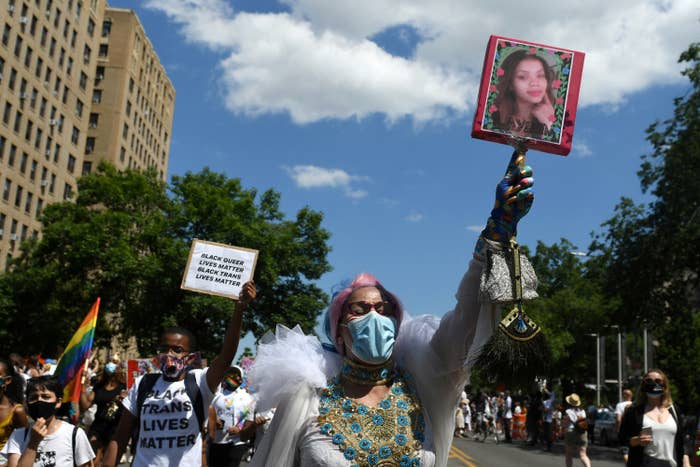
Seventeen New York City corrections officers will face disciplinary action over the death of a transgender woman in a Rikers jail cell, Mayor Bill de Blasio said Friday. Three of the officers and a captain will be suspended without pay.
“The death of Layleen Polanco was an incredibly painful moment for our city,” de Blasio said in a statement. “What happened to Layleen was absolutely unacceptable and it is critical that there is accountability.”
Layleen Xtravaganza Cubilette-Polanco, 27, died in June 2019 of an epileptic seizure while being held in "punitive segregation," or solitary confinement, on Rikers Island. She had not been able to afford the $500 bail for an assault and prostitution charge and was awaiting trial.
Despite jail policies requiring officers to check on her every 15 minutes, surveillance video released by her family two weeks ago showed that 47 minutes had gone by before an officer peered into the glass slit on the door to Polanco's cell. About 15 minutes later, when two correction officers opened the door to check on her, they were seen laughing on the video.
A few minutes later an officer was seen entering her cell after which Polanco was pronounced dead less than an hour later.
David Shanies, a lawyer representing Polanco's family in a federal civil rights lawsuit against the city and Department of Correction employees, had called the footage "horrifying for the family."
The officers' laughter, he said, is “a symbol of the complete disregard the entire system had for Layleen.”
Her death led to widespread anger from civil rights groups and calls to end solitary confinement, a practice that has been consistently criticized as inhumane, and even as torture by the United Nations.
Bronx district attorney Darcel Clark declined to file criminal charges after a six-month investigation into Polanco's death.
"After an in-depth investigation by my Public Integrity Bureau, we have concluded that we would be unable to prove beyond a reasonable doubt that any individual committed any crime associated with Ms. Polanco’s demise," Clark said.
The investigation report noted that Polanco had informed corrections officers that she "suffered from a seizure disorder."
Her family said in the lawsuit that Polanco should have not been placed in punitive segregation in the first place.
CORRECTION
David Shanies' name was misspelled in an earlier version of this post.
